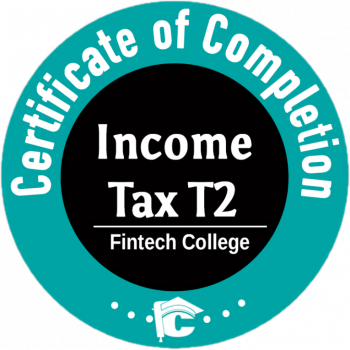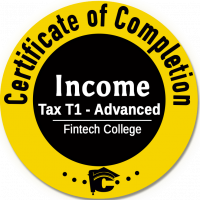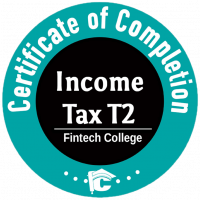On March 28, 2023, the Government of Canada released its Budget: A Made-In-Canada Plan.
One major focus of this year’s budget is developing Canada’s green economy by introducing a slate of corporate tax credits meant to encourage investment in clean energy. In particular, the budget announces new tax credits for clean electricity, and for clean technology manufacturing. In addition, the budget provides additional details on other green credits, including the labour conditions required to claim the full 30% rate under the previously announced Clean Technology Investment Credit and 40% rate under the Clean Hydrogen Investment Tax Credit. The following is the summary of the Budget for businesses.
-
-
Investment Tax Credit for Clean Hydrogen
-
Clean Technology Investment Tax Credit
-
Labour Requirements Related to Certain Investment Tax Credits
-
Investment Tax Credit for Clean Technology Manufacturing
-
Reduced Rate for Zero-Emission Technology Manufacturers
-
Investment Tax Credit for Carbon Capture, Utilization, and Storage
-
Flow-Through Shares and Critical Mineral Exploration
-
Tax on share buybacks
-
General Anti-Avoidance Rule (“GAAR”)
-
Dividend Received Deduction by Financial Institutions
-
Let’s look in more details:
1. Investment Tax Credit for Clean Hydrogen:
- Budget 2023 proposes to introduce the refundable Clean Hydrogen Investment Tax Credit (“CH Tax Credit”). The following credit rates would apply, based on assessed carbon intensity (CI) of the hydrogen that is produced (i.e., kilogram (kg) of carbon dioxide equivalent (CO2 e) per kg of hydrogen), to eligible property that becomes available for use before 2034:
-
-
- 40% for a CI of less than 0.75 kg;
- 25% for a CI greater than or equal to 0.75 kg, but less than 2 kg; and
- 15% for a CI greater than or equal to 2 kg, but less than 4 kg.
-
- The CH Tax Credit would be fully phased out for property that becomes available for use after 2034 and would apply to property that is acquired and that becomes available for use on or after March 28, 2023.
2. Clean Technology Investment Tax Credit – Geothermal Energy:
- Budget 2023 proposes to expand eligibility of the credit to include geothermal energy systems that are eligible for Class 43.1 of Schedule II of the Income Tax Regulations. The expansion of the credit would apply in respect of property that is acquired and becomes available for use on or after March 28, 2023, where it has not been used for any purpose before its acquisition.
- Budget 2023 also proposes to modify the phase-out schedule of the Clean Technology Investment Tax Credit announced in the 2022 Fall Economic Statement. Rather than starting the phase-out in 2032, the credit rate would remain at 30% for property that becomes available for use in 2032 and 2033 and would be reduced to 15% in 2034. The credit would be unavailable after 2034.
3. Labour Requirements Related to Certain Investment Tax Credits:
-
The 2022 Fall Economic Statement announced the government’s intention to attach prevailing wage and apprenticeship requirements to the proposed Clean Technology and Clean Hydrogen Investment Tax Credits. The government also proposes to have these requirements apply to the proposed Clean Electricity Investment Tax Credit. The government also intends to apply labour requirements to the Investment Tax Credit for Carbon Capture, Utilization, and Storage. The requirements would apply to work that is performed on or after October 1, 2023.
4. Investment Tax Credit for Clean Technology Manufacturing:
- Budget 2023 proposes to introduce a refundable investment tax credit for clean technology manufacturing and processing, and critical mineral extraction and processing, equal to 30% of the capital cost of eligible property associated with eligible activities. The credit would apply to property that is acquired and becomes available for use on or after January 1, 2024, and would be gradually phased out starting with property that becomes available for use in 2032 and would no longer be in effect for property that becomes available for use after 2034.
5. Reduced Rate for Zero-Emission Technology Manufacturers:
-
Budget 2023 proposes that income from certain nuclear manufacturing and processing activities would qualify for the reduced tax rates for zero-emission technology manufacturers, effective for taxation years beginning after 2023. Budget 2023 also proposes to extend the availability of these reduced rates by three years, such that the planned phase-out would start in taxation years that begin in 2032. The measure would be fully phased out for taxation years that begin after 2034.
6. Investment Tax Credit for Carbon Capture, Utilization, and Storage:
- Budget 2023 proposes that dual use equipment that produces heat and/or power or uses water, that is used for carbon capture, utilization, and storage as well as another process, be eligible for the CCUS Tax Credit. It is also proposed that British Columbia be added to the list of eligible jurisdictions for dedicated geological storage, applicable to expenses incurred on or after January 1, 2022.
- Budget 2023 proposes that, rather than obtaining approval from Environment and Climate Change Canada for the process for using and storing CO2 in concrete, taxpayers would need to have their technology validated by a qualified third-party, which would confirm that the process meets the minimum 60% mineralization requirement.
- Budget 2023 proposes that CCUS Tax Credits related to eligible refurbishment costs incurred once the project is operating would be calculated based on the average of the expected eligible use ratio for the five-year period in which they are incurred, and each subsequent period (i.e., the periods over which they contribute to the useful life of the project). These periods would be the same as those used to calculate the CCUS Tax Credit during construction.
- These measures would apply to eligible expenses incurred after 2021 and before 2041.
7. Flow-Through Shares and Critical Mineral Exploration:
- Budget 2023 proposes to add lithium from brines as a mineral resource for the purposes of the Critical Mineral Exploration Tax Credit (“CMETC”). Eligible expenses related to lithium from brines made after March 28, 2023 would qualify as Canadian exploration expenses and Canadian development expenses. The expansion of the eligibility for the CMETC to lithium from brines would apply to flow-through share agreements entered into after March 28, 2023 and before April 2027.
8. Tax on share buybacks:
- Budget 2023 provided more details on the proposed 2 per cent tax on the net value of public company share repurchases of $1 million or more of equity. For applicable transactions after 2023, the new tax will generally apply to Canadian resident corporations traded on a designated stock exchange.
9. General Anti-Avoidance Rule (“GAAR”):
- Budget 2023 proposes to amend the GAAR by: introducing a preamble; changing the avoidance transaction standard; introducing an economic substance rule; introducing a penalty; and extending the reassessment period in certain circumstances.
10. Dividend Received Deduction by Financial Institutions:
- To align the treatment of dividends and gains on portfolio shares under the mark-to-market rules, Budget 2023 proposes to deny the dividend received deduction in respect of dividends received by financial institutions on shares that are mark-to-market property. This measure would apply to dividends received after 2023.
To learn more about Corporate Taxes, browse our course and Download Syllabus https://www.fintechcollege.ca/income-tax-t2/
















